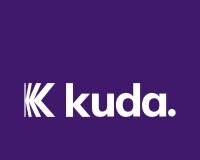What to expect from Nigeria Startup Bill and how it differs from NITDA Bill
TECHDIGEST – In light of the proposed National Information Technology Development Agency (NITDA Act) repeal bill recently released, there have been some misconceptions in relation to the Nigeria Startup Bill.
TechEconomy had a conversation with Babatunde Akin-Moses, the founder and CEO of Sycamore, a Nigerian fintech company, and a member of the communications team working on the Nigeria Startup Bill.
Apparently, the NITDA bill is a proposed amendment to its regulatory Act enacted in 2007, solely for the information and technology sector and the digital economy.
There is a total distinction between this bill and the Nigeria Startup Bill. NITDA is a broader law focused more on established companies than startups, not entirely ruled out, within the information technology sector.
This can be seen from the N100 million revenue limits from which the stated 1% levy would be paid.
Establishing this, Moses explained: “Startups are defined as companies that are either technology-focused or tech-enabled with less than 100 employees and have been in business for 10years or less,” he said.
“An example of a tech-enabled business would be a boutique with an ecommerce website where goods can be purchased. The boutique would qualify as a startup but a normal boutique shop would not because it is neither tech-enabled nor focused. But then, just because a boutique is tech-enabled, doesn’t mean it’s covered by NITDA. This is due to the fact that it is not in the information technology sector,” Moses pointed out.
Based on NITDA’s definition, tech-enabled companies in the information and technology sector, with a turnover of up to N100 million will pay 1% of their profit before tax (PBT).
According to Moses, the 1% is a levy entirely different from tax. An example is the 1% profit paid to NITDA, since 2007, by banks and telecom businesses. The reason being that they are highly technology-driven. The 30% of their taxable profit is paid to FIRS.
The essence of the 1% levy is to develop the sector, for the benefit of everyone.
Does that mean CAC has no more power in the sector? The answer is NO!
CAC registers all limited liability companies; NITDA is more like a regulatory body for the IT sector. ‘It’s not an “either-or” situation’. An entrepreneur within the sector has to register his or her business with both bodies.
Some instances include – banks register with CAC and CBN, the telecom sector registers with CAC and NCC, the petroleum sector registers with CAC and DPR. Hence, NITDA and CAC are essential for the information technology sector.
The Nigeria Startup Bill
On Monday, August 16, 2021, and Tuesday, August 17, 2021, a meeting in view of the NBS was held in Abuja. Startups, rectors, the minister of the digital economy, and the special adviser to the government on technology and digital matters, among other stakeholders were participants in the meeting.
According to Moses, startups were well represented. These startups among several legal firms are the ones drafting the bill. Hence it is very startup-friendly, Moses said.
The Nigeria Startup Bill has not been passed, neither has a draft been released. In conjunction with startups and key volunteers, the Presidency is currently reviewing the bill.
What should we expect from the Nigeria Startup Bill yet to be released?
Nigeria Startup Bill
Attendees at the MDA Consultation Session for the NSB
“Expect a law that recognises the peculiarity of startups,” Moses said.
The bill addresses three main aspects referred to as the “WHY” of the NSB.
The first is the Regulatory Certainty for Startups. This is to put an end to the haphazard laws and policies that pop up every day.
The second reason is to provide an enabling environment for startups through incentives. These include tax incentives, benefits for being an employee of a startup, among others. “The essence is basically to provide a more enabling environment for startups to thrive in Nigeria,” Moses said.
The last reason is to encourage local content. The Nigeria Startup bill seeks to encourage Nigerians and Nigerian companies to engage in startups. Incentives would be given to Nigerians starting up tech-enabled businesses.
For startups to access these incentives, they have to undergo a process to get registered as a recognised startup.
















